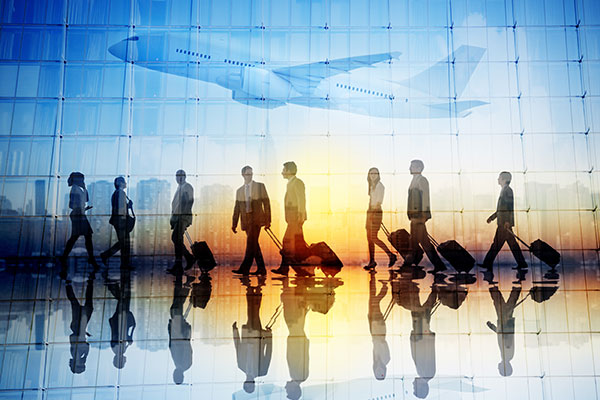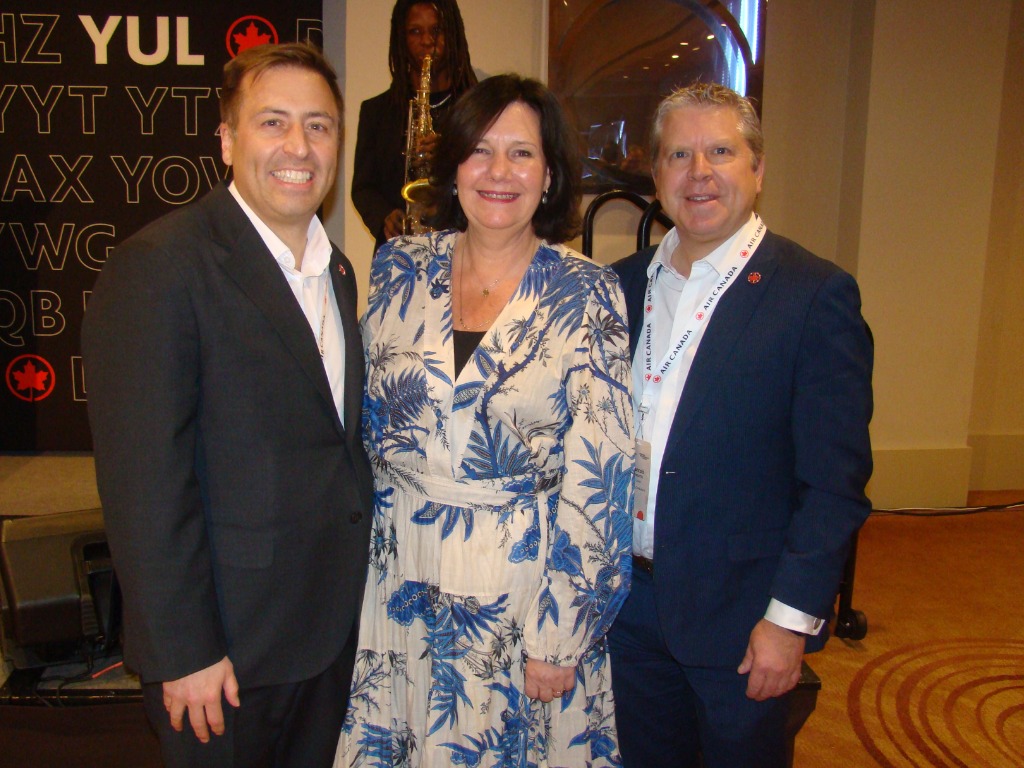On The Road Again … But Is It Essential
Survey Finds Business Travellers Have New Concerns In A Post-Pandemic World

While corporate travel is clearly picking up, the business travel industry may well want to take note of a new survey that provides new data on the concerns, attitudes and behaviours of business travellers in both Canada and the United States.
The Opinium survey – commissioned by World Travel Protection, a global travel risk management organization – looks at the top safety concerns of travellers in a post-COVID world as well as the impact of business travel on mental health.
As well, the survey explores the confidence of travellers in their employers’ ability to help in an emergency, along with the disconnect between expectations and reality when it comes to the role of embassies and governments.
Key findings include:
- Just one third of business travellers in North America say they are happy to be travelling for work again (Can 36%; US 33%). Even fewer think that travel is “essential” for their jobs today (US 31%; Can 23%).
- Delays and disruptions are the biggest cause of concern (US 82%; Can 78%), as well as catching COVID-19 and having to isolate (US 70%; Can 70%) and losing a phone or laptop (US 69%; Can 69%). Other concerns include being hacked using an unsecured WiFi network (US 76%; Can 63%), being the victim of a crime (US 72%; Can 66%), and experiencing geopolitical threats (US 69%; Can 63%).
- Almost one third of US business travellers (30%) and a quarter of Canadians (25%) say they are more concerned about their health and well-being while travelling now, compared to before the pandemic. When travelling for work, many report feeling stressed (US 41%; Can 30%), exhausted (US 38%; Can 30%), homesick (US 32%; Can 28%), and anxious (US 31%; Can 27%).
- Almost 7 in 10 business travellers agree that travelling for work as a woman is less safe than travelling as a man (US 67%; Can 67%). About a quarter of those surveyed prefer not to travel to countries where women’s rights aren’t protected (US 25%; Can 27%), but many more women than men have this sentiment (US 31% women vs. 20% men; Can 44% women vs. 12% men).
- Only a small majority of business travellers feel their organization would be able to help if they had an emergency (US 60%; Can 54%) or required medical help (US 57%; Can 50%) while travelling abroad. Even fewer business travellers think their companies would help if they were to lose their passport and/or money (US 49%; Can 40%), if there were a major weather event or natural disaster (US 44%; Can 40%), or if there was a domestic incident (US 41%; Can 31%).
- A majority of business travellers say they would like their employer to check in more often when they are travelling (US 61%; Can 50%). Notably, three fourths say they would decline a business trip if they didn’t feel confident that their employer was prioritizing their safety (US 78%; Can 74%).
Commenting on the findings, Dr. Joel Lockwood, Chief Medical Officer, Canada, World Travel Protection, observed that: “The stress of travel and being away from traditional support networks is challenging for many people, and this is compounded by a burnout created by the COVID-19 pandemic. The severity of episodes and shortness of onset are certainly key areas to watch.”
For companies, Grace Patenall, Global Chief Legal Officer, World Travel Protection, pointed out that: “What some employers may not understand is that they have a Duty of Care, or legal obligation, to prevent their employees from reasonably foreseeable risks.”
Patenall continued: “This includes having a travel risk management (TRM) policy in place, with sound, strategic steps that reflect the realities of the changing landscape and safeguard the wellbeing of their employees who travel.”
And Patenall added: “Organizations that either don’t have a TRM strategy or are not communicating this to their traveling employees in advance of departure are not only putting their travellers at risk, but also the reputation of the organization.”
Also of note in the survey is should North American business travellers encounter an emergency while traveling, they are misinformed about what to expect from their embassies and governments.
While almost three fourths believe their embassy will help them get medical treatment if needed (US 73%; Can 70%) and a majority think their government would pay to get them home (US 62%; Can 55%), this is not always the case.
Frank Harrison, Regional Security Director, North America, World Travel Protection, said that: “There can be misguided beliefs about the type of support that embassies and governments provide. We hear this a lot both from travellers and organizations, who seem to think that all they need is a quick visit to their home country’s Embassy or High Commission and all will be fine.”
Harrison continued: “Unfortunately, while embassies and governments may provide certain services, such as a list of physicians and hospitals, they typically won’t make decisions about a traveller’s medical care or pay to evacuate them home.”
Tags:


